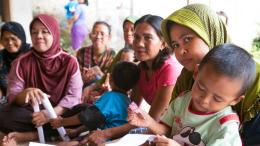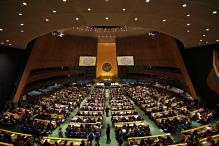Transnational organized crime continues to be a critical driver of conflict and instability, challenging the effectiveness of peacekeeping operations. This joint input paper – submitted to the Global Alliance for Peace Operations for the UN Ministerial on Peacekeeping – emphasizes the need for comprehensive and integrated responses to transnational organized crime, drawing on research by UNU-CPR and the Global Initiative Against Transnational Organized Crime.
Transnational organized crime generates billions annually through illicit trafficking and thrives in conflict-affected environments. It fuels violence, undermines governance and complicates peacebuilding efforts. Yet, despite increasing recognition – evident in 52 per cent of Security Council resolutions referencing illicit markets in 2024 – it is still often treated as a technical issue within peace missions, delegated to police components and rarely addressed through political strategies.
The paper highlights findings from UNU-CPR case studies on UN peacekeeping missions in Mali (MINUSMA) and the Central African Republic (MINUSCA). In both, multilateral efforts to tackle organized crime and trafficking have lacked an overarching strategy and prioritization. As a result, broader dynamics of illicit economies were overlooked, and these overall challenges were under-resourced and lacking political support. Similar challenges confront new missions like the Multinational Security Support mission in Haiti.
The paper argues that reactive and siloed responses are no longer adequate. As illicit economies evolve and intersect with political processes, peace operations must adapt with integrated strategies, sustained political engagement and adequate resources to meaningfully counter transnational organized crime.
To overcome these limitations, the paper outlines key policy recommendations:
- Mission-wide coordination and knowledge - including the establishment of a transnational organized crime focal point.
- Partnerships with local and regional actors - supporting financial intelligence units, civil society watchdogs and communities can create long-term impacts and sustained peace.
- Strengthening of existing components - including an alignment of sanctions and diplomatic tools and scaling-up of police and border capacities.
Access "Transnational Organized Crime and Peacekeeping: Joint Input Paper to the Global Alliance for Peace Operations" here.
Suggested citation: Catharina Nickel, Summer Walker. Transnational organized crime and peacekeeping: strengthening mission approaches for greater impact : UNU-CPR, 2025.


